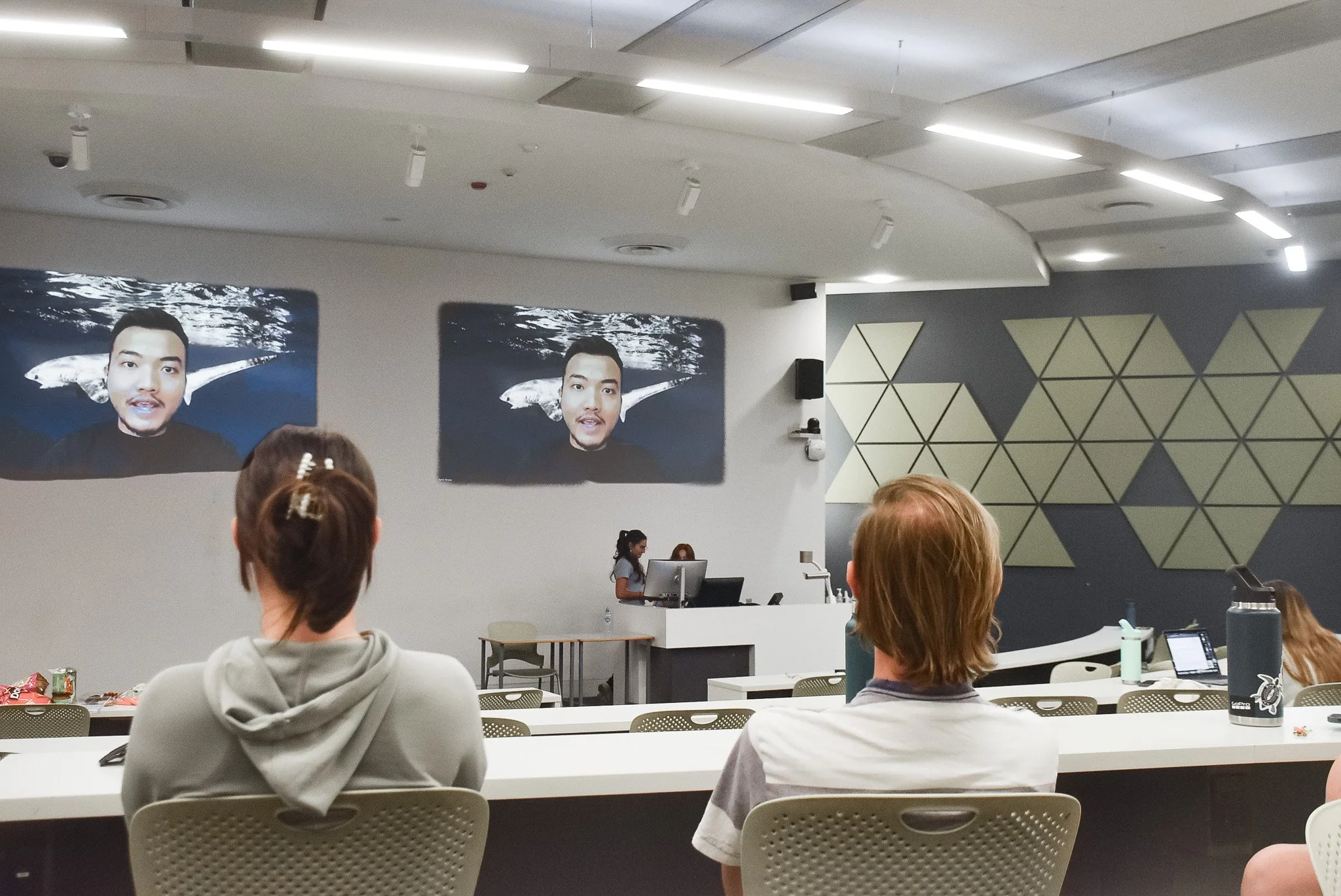Meeting #16 Thresher Shark Indonesia, and intro to freediving
With heartfelt gratitude, the FINstitute executive team extends a sincere thank you. This semester, once again, has surpassed all our expectations, and we deeply appreciate the support we've received. We are also immensely thankful to the remarkable speakers who dedicated their time and effort to provide our club with unique learning experiences. Looking ahead, we are thrilled to continue offering educational opportunities next semester. Stay in touch for updates and information about our plans for the upcoming term, as we aim to expand our reach internationally. Step by step...
Dr. Adam Smith
HUGE thank you to Dr. Adam Smith from Reef Ecologic who stepped in to teach a freediving basics workshop 2 hours before our meeting since our original speaker, Adam Stern had to cancel due to a family situation. But don’t worry…we will have him back next semester…
Takeaways from the Adam’s talk included:
Relaxation is key to increasing breath holds in freediving
Yoga and breathwork are the basis of a skilled freediver and these things can be practiced on land at any time
NEVER push your limits unless under the direct training of a trained professional…always go for 70-80% of your limit or less
NEVER practice breathing unsupervised (in a pool, the ocean, the bath, etc.)
ALWAYS dive with a buddy who is trained in the proper rescue techniques
Shallow water blackouts are common in this sport so it is essential that you have an attentive and responsible buddy with you at all times
Another massive thank you to Rafid Shidqi from Thresher Shark Indonesia.
Takeaways from the Rafid’s talk included:
1. Thresher Sharks Conservation Challenges and Status
Thresher sharks are commonly caught in Indonesian fisheries and have recently been classified as endangered by the IUCN Red List.
Conservation efforts face significant challenges due to a lack of data, political will, and the difficulty of shifting remote communities away from shark fisheries due to economic and logistical constraints.
2. Economic Potential of Thresher Shark Tourism
Thresher shark tourism has been successful in places like Malapascua, the Philippines, generating local economies and promoting conservation efforts.
There is potential to replicate this model in Indonesia, particularly in areas like Alor.
3. Alor as a Focus for Conservation Efforts
Alor Island in East Nusa Tenggara Province is a key area due to its significant marine protected areas, the presence of endangered thresher sharks (mostly pregnant females), and a small number of thresher shark fishermen whose activities could be halted to protect the species.
The growing tourism industry could incentivize conservation, making Alor a model community for intervention.
4. Current and Future Conservation Initiatives
Ongoing efforts by Thresher Shark Indonesia include producing knowledge on thresher shark habitats, advocating for local government policy changes, and exploring alternative livelihoods for fishermen, such as transitioning to tuna fisheries.
Collaboration with tourism operators and the Dive Center Association is crucial, although challenges such as political conflicts and the impact of COVID-19 on tourism remain.
Efforts are being made to scale these initiatives, including the establishment of an acoustic network for broader marine species studies and further developing alternative fisheries.
While it takes years of training and practice to be able to do this on living sharks in the wild, this is a great skill to get some professional training in for your own personal experience and exploration.












